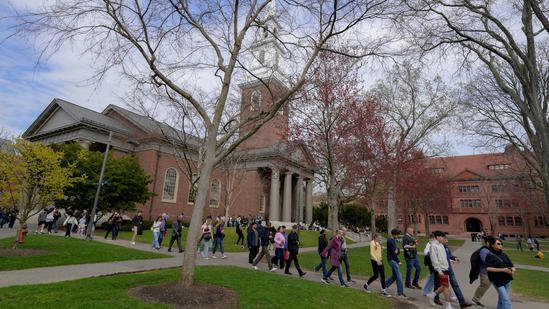In recent years, the United States has been a top destination for international students seeking quality education, particularly in prestigious institutions like Harvard University. However, under the Trump administration, a series of immigration and visa policy changes began to raise serious concerns among prospective foreign students. These concerns are not unfounded, and experts warn that if such policies continue or resurface, elite universities like Harvard could face a significant drop in international enrollment.
Foreign students contribute enormously to the U.S. education system, both economically and academically. In 2019 alone, international students contributed nearly $45 billion to the U.S. economy, according to the U.S. Department of Commerce. Harvard, being one of the most sought-after institutions, hosts thousands of students from around the globe every year. But during the Trump presidency, several policies made the U.S. a less welcoming place for these students, potentially threatening this inflow.
One of the most controversial policy changes came in 2020, when the Trump administration announced that international students taking only online classes due to COVID-19 would not be allowed to remain in the United States. This directive, issued by the U.S. Immigration and Customs Enforcement (ICE), sparked widespread criticism and legal action. Harvard University, along with MIT, filed a lawsuit against the policy, arguing that it was both dangerous and disruptive. Within days, the administration was forced to rescind the rule. However, the incident left a lingering sense of uncertainty among foreign students.
The administration justified its stance by citing national security concerns and the need to prioritize American jobs and educational opportunities for U.S. citizens. Trump officials argued that a tighter immigration framework was necessary to protect domestic interests, especially during the pandemic and economic downturn. They also expressed concerns over potential misuse of student visas and the risk of intellectual property theft, particularly involving students from countries like China.
While these points were emphasized as part of a broader “America First” agenda, critics argue that such measures are short-sighted. By discouraging international students, the U.S. risks losing out on global talent. Many of these students go on to become innovators, entrepreneurs, and skilled professionals who contribute meaningfully to American society. Moreover, international students often pay full tuition, helping to subsidize education for domestic students and fund research.
At institutions like Harvard, the diversity and academic excellence of international students have always been part of the university’s identity. Losing this demographic would not only impact revenue but also the intellectual vibrancy and cultural exchange that are central to the campus experience.
Further complicating the issue were delays in visa processing, increased denials of student visa applications, and heightened scrutiny of Chinese students in STEM fields. These factors combined to create an atmosphere of insecurity and unpredictability. Even after Trump left office, the aftereffects lingered, influencing how international students perceived studying in the U.S.
Alternative countries like Canada, the UK, and Australia have benefited from this shift. Offering more stable and inclusive immigration policies, these nations have seen a rise in international student applications. Harvard and other American universities now face increased competition globally—not just for the best students, but for maintaining their reputation as world leaders in education.
The Biden administration has taken steps to reverse some of Trump’s restrictive policies and rebuild the United States’ image as a welcoming place for international students. However, the fear remains that future administrations might revert to harsher stances. This uncertainty makes long-term planning difficult for students and universities alike.
If Harvard and other top U.S. institutions hope to maintain their international appeal, a sustained commitment to inclusive and transparent policies is essential. America’s edge in global education has always depended on openness, innovation, and diversity. Losing that edge could mean not just a dip in enrollment—but a weakening of the country’s intellectual leadership on the world stage.

